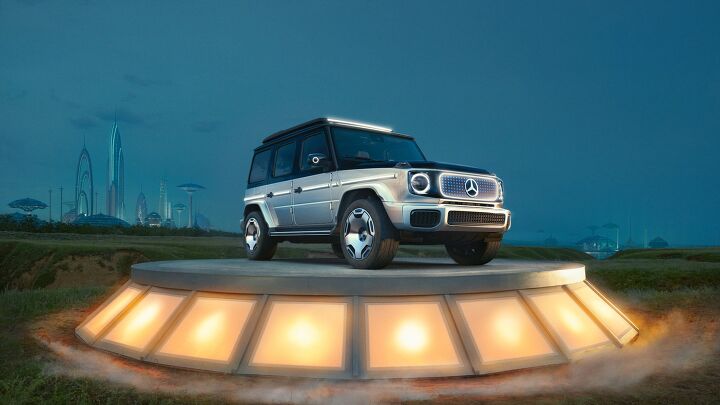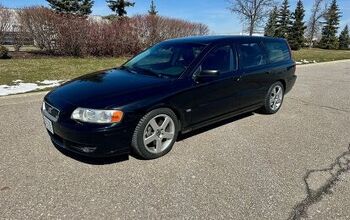The Upcoming Mercedes-Benz EQG Will Get an Innovative New Battery Design

The Mercedes-Benz G-Wagen is the ultimate symbol of wealth and extravagance in the automotive world, but it might soon stand for something much more practical. California-based Sila, a startup focused on battery materials and design, recently announced that its new silicon anodes would be used in the Mercedes-Benz EQG, an electrified version of the iconic off-roader.
Sila’s “Titan Silicon” can store more energy than other battery materials in the same space. As Electrek pointed out, studies have shown that they offer up to a 40 percent increase in the energy density of standard silicon anodes. The company also promises charging improvements, with rates as fast as 20 minutes to recover from 10 to 80 percent.
The upcoming EQG will be the first vehicle to feature the novel battery design, which is also cleaner to produce than traditional battery production. The SUV is due in late 2024 or 2025, and Sila’s Titan Silicon will be ready for market around the same time.
As EVs become more prevalent, the need to diversify and improve battery materials and production methods has grown. Solid-state batteries, which promise higher energy density, better safety, and faster production times, may still be years off. Mercedes’ move to a new type of battery tech is a good stepping stone that may help it hedge its risks, as the future and timeline of solid-state batteries are unpredictable.
[Image: Mercedes-Benz]
Become a TTAC insider. Get the latest news, features, TTAC takes, and everything else that gets to the truth about cars first by subscribing to our newsletter.

Chris grew up in, under, and around cars, but took the long way around to becoming an automotive writer. After a career in technology consulting and a trip through business school, Chris began writing about the automotive industry as a way to reconnect with his passion and get behind the wheel of a new car every week. He focuses on taking complex industry stories and making them digestible by any reader. Just don’t expect him to stay away from high-mileage Porsches.
More by Chris Teague


































Comments
Join the conversation
You're certainly right about the Deutschers - been up against them in several different situations - professionally and otherwise. If a German engineer doesn't like what you say, you're toast - unless you've found the fatal flaw in their thinking or product which forces them to revise out of no alternative solution - but don't go public about it! I once settled a potential lawsuit where a German supplier, using our material, misapplied the product due to not understanding the nature of our product - engineering plastics - not cheap trim stuff - and nearly shut down a major European car mfr. I duplicated the in-car failure, created a solution for it that could be done on the quiet during a dealership "invite" for a free checkup. During the "checkup", my fix would be installed with no knowledge of the customer. And properly done, that fix could last the life of the vehicle, while the supplier found a better way to use our product instead of abusing it. And while restoring one classic Mercedes, I found their over-engineering of one of their '50s products actually was detrimental to satisfactory operation of the drum brakes. I could have thrown away a very large no. of parts used in that system which did nothing to improve the performance, and actually exacerbated rebuilds!
Are we saying that battery technology can actually improve? Cool.
Unless they read what I wrote. You're writing stories based on press releases that are false. I really don't care, I stand by what I wrote. Over 16 billion wasted and counting. Hell, Ford lost 6 by itself and GM another 6. Even Amazon lost 4. You have no idea what you're talking about. There, I said it again.
Batteries and ICE drivetrains are not equals when it comes to economies of scale. Yes it takes a billion dollars or so to develop a new combustion engine and to equip a factory for production. Most of the cost of the ICE is front-loaded and can be amortized over millions of units to bring down prices. The actual materials that make up an engine or transmission are not very expensive. Plastic, aluminum and steel are cheap...relatively speaking.
Batteries do not benefit from the same economies of scale. It takes the same billion or so to develop the batteries and equip the production factory, but the raw materials that makeup the electrolytes, anodes and cathodes are stupidly expensive. This is unlikely to change with scale - and the cost problems could actually become worse as demand is driven upwards by legal mandates.
EVs drivetrains are simpler than ICE drivetrains, but made out of much more expensive stuff.